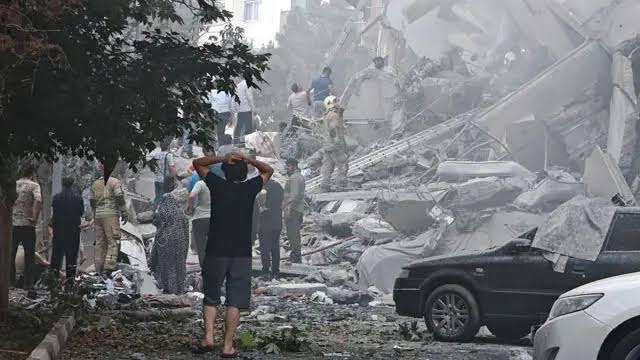Facebook Twitter (X) Instagram Somali Magazine - People's Magazine
As Israeli airstrikes rained down on Iran for a third straight day, ordinary citizens across the country described an atmosphere of fear, confusion, and helplessness. From long queues at petrol stations to sleepless nights without warning sirens, many Iranians say they feel abandoned, unsure of how to protect their families in what now feels like an active war zone.
In Tehran, the nation’s capital, residents told BBC Persian they were trying to flee the city, fearing they could be next. But many couldn’t even escape the province due to paralyzing traffic jams. “Tehran isn’t safe, clearly,” one resident said. “We get no alarms or official warnings before the attacks. We just hear the blasts and hope we aren’t next. But where can we go? Nowhere feels safe.”
On Sunday, gas stations across Tehran were overwhelmed as drivers scrambled to fill tanks before heading to rural areas. Others stayed behind, trapped by circumstance or loyalty to loved ones. “We’ve all wanted to leave for smaller cities or villages,” one woman explained, “but each of us has family who can’t move. It’s not fair. This isn’t our war. We just want to survive.”
The recent escalation marks Israel’s most significant wave of airstrikes in years, striking multiple Iranian targets following a series of escalating tensions between the two nations. According to Iran’s health ministry, the strikes have killed 224 people since Friday. Iran retaliated with missile attacks on Israel, where officials say at least 19 people have been killed.
Some older Iranians have drawn comparisons to the Iran-Iraq war of the 1980s, recalling the sounds of bombings and time spent in shelters. But many say this time feels worse. “Back then we had sirens and warnings before bombs dropped,” one woman said. “Now there’s nothing—just explosions in the night. The fear is constant.”
Young Iranians, many born after the war, are now experiencing the shock of modern warfare for the first time. For them, the destruction of residential buildings has been especially horrifying. “We’ve never seen our cities attacked like this,” a Tehran resident said. “This isn’t just about military targets—it’s our homes, our neighborhoods.”
People living near suspected military sites appear to be especially anxious. Israeli forces have reportedly issued warnings urging civilians to evacuate areas near such locations. But locals say they’re left in the dark. “How are we supposed to know what’s near a military site?” one person asked. “There are no maps or alerts. We’re just guessing where to hide.”
The uncertainty has left many Iranians in a state of psychological exhaustion. Some describe being unable to sleep, with internet outages making it even harder to stay informed or in touch with loved ones. Iranians living abroad are left anxiously waiting for replies from family members back home.
In a public statement, Israeli Prime Minister Benjamin Netanyahu called on Iranians to “stand up for your freedom.” But those on the ground say survival is their only concern. “I’m not rooting for either side,” one man said. “This isn’t my fight. I just want to keep my family alive.”
Despite the violence, most Iranians have chosen to stay put, largely because they have no other option. “I can’t just leave Tehran,” one man said. “My elderly parents can’t travel, and I need to go to work. What can I do? We’re all just stuck.”
The human cost is mounting. What began as an Israeli geopolitical conflict with Palestine is now tearing through everyday lives—leaving destruction, grief, and trauma in its wake. As missiles fall and sirens stay silent, the people of Iran continue to live each day in fear, wondering if the next blast will be their last.

